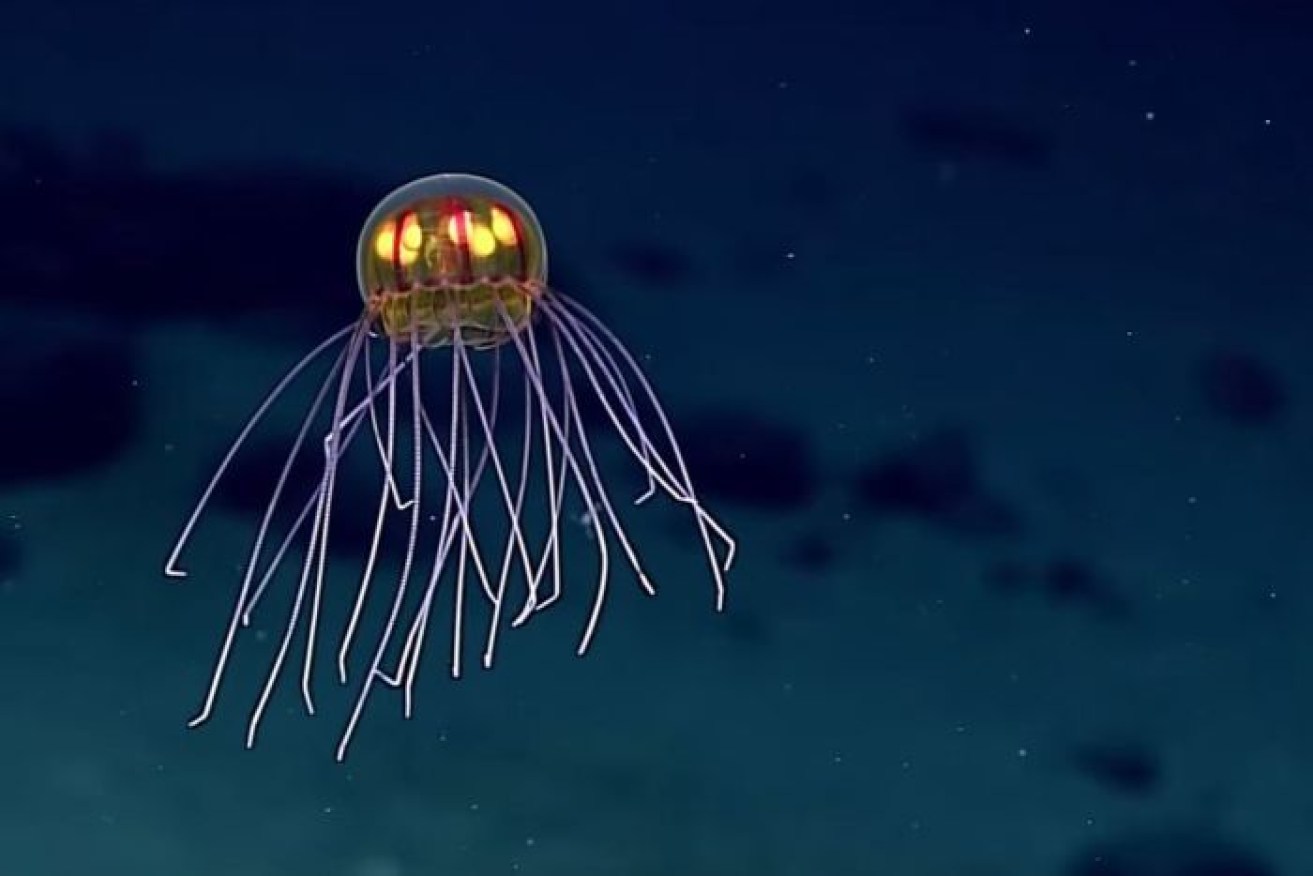Jellyfish warning system in doubt as expert departs CSIRO

The jellyfish warning system is in doubt. Photo: NOAA Office of Ocean Exploration and Research
In the wake of a huge stinger swarm that continues to plague Australia’s east coast, world-renowned expert Lisa-Ann Gershwin is preparing to leave the Government’s peak scientific body after it advised it would not be renewing her contract.
Dr Gershwin’s seven-year employment at the Commonwealth Scientific and Industrial Research Organisation (CSIRO) will end on February 28, along with her extensive work on a potentially life-saving Irukandji early warning system.
A CSIRO spokesperson said Dr Gershwin’s projects would be “concluding in the coming months and her employment would also conclude”.
“Dr Gershwin will continue to work on jellyfish through her private consultancy. Research into marine organisms and changes in the marine environment will continue at CSIRO through a range of projects undertaken in the oceans and atmosphere business,” the spokesperson said.
During her career Dr Gershwin has discovered more than 200 ocean species and 14 of the 16 known species of Irukandji.
She said she was saddened she would not be allowed to stay on with the CSIRO, but her main concern was the conclusion of her extensive work on an Irukandji advance warning system.
A three-year trial of the system had shown it was working.
“One of the projects dearest to me is the Irukandji early warning system,” Dr Gershwin said.

Dr Lisa-Ann Gershwin holds an irukandji jellyfish in a plastic container. Photo: ABC
“I figured out in December 2011 the key to predicting when and where Irukandji were most likely to occur. We began developing this into an early warning system.
“But the funding ran out in December and because I’m not staying on, I didn’t make effort to get more funding
“That I’m a little bit worried about – I can’t see how in the short term it will get up and running.
“And with me not in the organisation, it would be very hard to finish it off – this saddens me a lot.”
At least 20 people have been taken to hospital with suspected Irukandji stings in Queensland this season, more than double the 10-year average. Stingers were also being found further south.
The CSIRO has not responded to questions as to whether it would attempt to continue with the advisory system after Dr Gershwin’s departure.
A spokesman said the key people were “on leave”, however the organisation worked “collaboratively with other ocean and marine research institutions, including the NESP (National Environment Science Program) Tropical Water Quality Hub”.
Associate Professor David Schoeman from University of the Sunshine Coast has consulted with Dr Gershwin over several years in his work with climate change and said he was “saddened” her role was not continuing.
“Lisa’s pretty much unique in the Australian field for her work done in classifying, naming and identifying jellyfish for doing interesting science and communicating effectively,” he said.
There are other very good scientists, but Lisa’s life is jellyfish.
“I’m not aware of the details why her contract has not been continued but I’m saddened as she is an excellent scientist.
“The bigger issue, and this is my bugbear with Australian science and global science, is it that is incredibly difficult to get funding to do fundamental research.
“The CSIRO’s remit now seems to be to deliver services to the public, to be an industrial body with scientific input.”
‘Responsibility of the CSIRO’: Minister
Acting Innovation Minister Matt Canavan said the Coalition Government had increased funding to the CSIRO with an extra $40.2 million allocated in 2018-19.
However, staffing discussions and research projects within the organisation were “the sole responsibility of the CSIRO as an independent statutory authority”.
Dr Gershwin said the decision was not related to funding cuts that prompted a temporary end of her work at the organisation in 2014.
“I’ve been told ‘no’, that was a very special circumstance and that directive came from Parliament, there was a general nationwide freezing of contracts,” she said.
“In that case, I stayed on at CSIRO and did my work every day on an unpaid basis for some time.
“I was able to do business development to create projects to bring back my employment. In this particular case, that offer is not on the table.
“This one has not come from somewhere else. It was a business decision the organisation has decided to make.”








